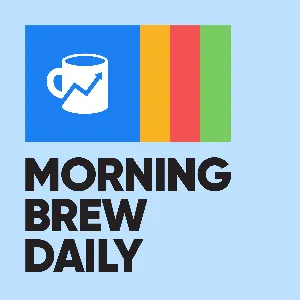Podcast Summary
Find top talent on LinkedIn, Prioritize quality sleep: Businesses can discover untapped talent on LinkedIn, individuals should prioritize quality sleep for a healthy, long life, and scientific advancements contribute to increasing life expectancy.
LinkedIn is a valuable resource for businesses looking to hire top talent. With over 70% of LinkedIn users not visiting other leading job sites, potential candidates like Sandra, who were not actively looking for a new job but open to the perfect role, can be found on LinkedIn. Furthermore, the importance of quality sleep was emphasized, with the Sleep Number smart bed offering individualized comfort to help people sleep better together. On a larger scale, the discussion touched upon the significance of life expectancy and the progress made in this area. According to American science writer Steven Johnson, if we were to publish a newspaper every century, the headlines would likely focus on big, slow-moving stories, and the increase in life expectancy doubles might well be on the front page. This incredible story of progress is a testament to the power of scientific advancements and their impact on our lives. So, in essence, businesses should harness the power of LinkedIn to find top talent, and individuals should prioritize quality sleep to ensure a healthy and long life.
Advancements in extending human lifespan: Over the last century, we've doubled the average human lifespan and dramatically reduced childhood mortality, with improvements in medical care, living conditions, and access to food and water.
Human civilization has made an unprecedented achievement by doubling the average human lifespan and dramatically reducing childhood mortality over the last century. However, it's not just a matter of preventing infant mortality. While childhood mortality reduction played a significant role, there have also been advancements in extending the lives of older adults. For instance, if you survived childhood in 1850 and reached the age of 20, you could expect to live until 60. Today, that same age comes with an expectation of living until 85. This improvement is not a statistical illusion, as some may argue, but a result of various factors including medical advancements, improved living conditions, and better access to food and water. The overall increase in life expectancy is a remarkable achievement in human history, transforming the way we live and view aging.
Understanding the history of calculating life expectancy: John Grant, a London haberdasher, began analyzing mortality figures during the plague years, categorizing causes of death and identifying trends to understand real threats and potential responses. Life expectancy can change due to unforeseen circumstances, like pandemics, leading to longer lifespans.
Life expectancy is calculated based on mortality patterns at the year of birth, but it can be influenced by significant events like pandemics. The story of calculating life expectancy began with John Grant, a haberdasher in London during the plague years. He analyzed mortality figures to understand causes of death systematically and categorized them, including "suddenly," which he found intriguing. This historical data analysis aimed to identify real threats and potential responses. However, it's important to remember that life expectancy can change due to unforeseen circumstances, like surviving a pandemic, which can lead to longer lifespans. Thus, while calculations can provide valuable insights, they don't capture the complexities and uncertainties of individual lives.
Understanding Population Health through Life Tables: John Graunt's analysis of life tables revealed patterns of death in societies, while W.E.B. Du Bois used data to expose health disparities in marginalized communities, revolutionizing the way we understand human health and inequality.
The creation and analysis of life tables by John Graunt was a groundbreaking development in understanding population health and inequality. Graunt calculated the percentage of deaths at different ages to create a distribution of deaths in a population, which provided insights into the health of a society and allowed for comparisons to other places. W.E.B. Du Bois, another pioneering figure in this field, used data to expose health disparities, particularly in African American communities. After graduating from Harvard with a PhD, Du Bois was hired to analyze the problems in a largely African American neighborhood in Philadelphia. The use of data in these investigations unlocked new ways of understanding patterns of human health and exposed previously invisible disparities.
Pioneering social epidemiology: W.E.B. Du Bois' investigation of health disparities: W.E.B. Du Bois' groundbreaking research in the late 1800s revealed the significant impact of social and economic conditions on health disparities between black and white communities, leading to the birth of social epidemiology.
W.E.B. Du Bois, a 29-year-old scholar, pioneered the field of social epidemiology at the end of the 19th century by investigating the health disparities between black communities and their white counterparts. Du Bois conducted extensive research in inner-city neighborhoods, knocking on thousands of doors, analyzing living conditions, and examining health statistics. He discovered that the poor physical environment and systemic racism led to shorter lives and higher child mortality rates for black residents. This groundbreaking work, which is considered the birth of social epidemiology, demonstrated the significant impact of social and economic conditions on health. Today, this field continues to be crucial in understanding and addressing health disparities. Additionally, data and statistics have played a vital role in extending life expectancy, as highlighted in Steven Johnson's book "Extra Life."
Budget-friendly, flexible TriTerm Medical plans from UnitedHealthcare: UnitedHealthcare's TriTerm Medical plans offer long-term, flexible coverage for individuals in between jobs or missed open enrollment, with access to a nationwide network and coverage durations up to nearly three years in some states.
UnitedHealthcare TriTerm Medical plans offer budget-friendly, flexible health insurance coverage for individuals who are in between jobs or missed open enrollment. With a coverage duration of nearly three years in some states and access to a nationwide network of doctors and hospitals, these plans provide peace of mind for an uncertain future. The changing times may bring new technologies like chatbots, but the need for health insurance remains constant. For those looking for affordable and long-term coverage, UnitedHealthcare TriTerm Medical plans could be an excellent option. Learn more about these plans at uhone.com.





